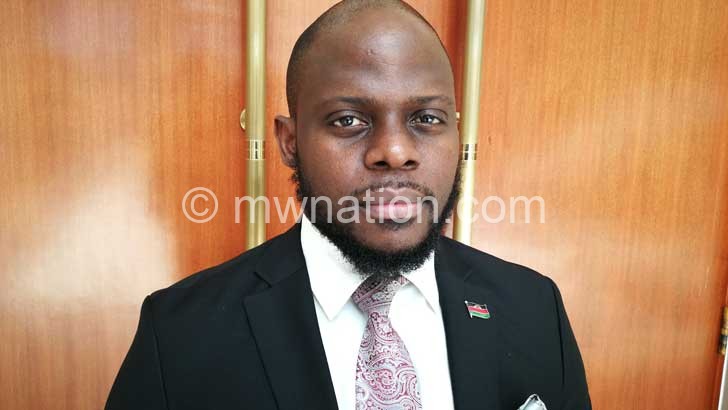Chakwera talks tough
- Instructs MDAs to buy local products
- Against monopoly in govt procurement
President Lazarus Chakwera has directed ministries, departments and agencies (MDAs) to prioritise local goods and services in their procurement and to buy from local small and medium enterprises (SMEs).
In his address last night to outline his administration’s policy direction, the President said it does not make sense to import things like uniforms and shoes for security agencies when such products can be made locally.

He said: “To support local industries, I am directing all MDAs to give preference to the procurement of locally- made goods. I have personally seen the great work done by local artisans in places like Ndirande in Blantyre, Mchesi in Lilongwe, Katoto in Mzuzu, and other places, producing everything from office furniture to building fixtures, and yet the young people who do such great work are never given a chance.
“I am here to change all that. As far as I am concerned, there is no justification for importing things like uniforms and shoes for army and police officers. Under my administration, I want MDAs to prioritise procuring such goods and services locally where they are available.”
In January 2019, The Nationbroke a story which revealed a controversial K53 billion Immigration uniforms supply deal in which a single uniform shirt for an Immigration officer was pegged at about K60 000 and in some cases a belt quoted at K100 000.
If the President’s directive on buy local products is earnestly implemented, it may help to cut down on inflated expenditure that comes with imported goods and services.
Chakwera further urged government institutions such the Malawi Bureau of Standards and Small and Medium Enterprises Development Institute to help build the capacity of local manufacturers wishing to supply their products locally.
He said he expects local suppliers, manufacturers, and artisans to work with relevant government agencies to improve on standards.
Said the President: “However, I am putting all public servants on notice regarding these policies because any MDA found to not be adhering to this will be answerable and bear the consequences of their failure.”
Chakwera also warned against “monopolitistic business tendency” where a few individuals and companies make multiple applications for a single government contract, stressing that his administration will stop it.
He said the net effect of this practice is that the contracts across MDAs are concentrated in a few hands who benefit from one regime to another at the expense of the rest of the citizens.
Chakwera said the time has come to break what he called the “stupid monopoly “ and replace it with government policies, legislation and practice that promote inclusive economic growth.
In a telephone interview last night, economist Milward Tobias , who runs Centre for Research and Consultancy, commended Chakwera for his position on promoting local products and SMEs, but warned that the success of this plan depends on the President himself.
He said: “We have not failed because we lack ideas. We have ideas and beautiful strategies but we fail to achieve them because of leadership.
“The captain of the ship has to make things work. So in this, Chakwera must ensure that his word is executed.”
According to Tobias, for a government to be successful, it requires a strong president, chief secretary, minister of Finance and Reserve Bank Governor to achieve its economic policies.
He explained: “Change in policy has its own victims. In this case, those that have been monopolising businesses will be victims of this [new policy position] and will do everything to frustrate the change. The leadership has to be strong enough to be able to antagonise a few in the interest of many.”
The economic commentator further said for SMEs to fully benefit from public contracts, they do not just need capacity but an improvement in the government payment system which naturally does not favour SMEs.
He said payment for goods and services take long which not only affects businesses, but also fuels corruption.
Government in 2009 developed a Buy Malawi Strategy which expired in 2014 without much to show for it. The strategy, among others, sought to improve the public procurement system to favour local suppliers and supplies.
In 2015, former president Peter Mutharika renewed the Buy Malawi Strategy for another five years, with an admission that the first one did not succeed. But this one too seems to have flopped as Malawians continue to prefer imported products at the expense of local producers.
During last night’s address, Chakwera also announced that while he previously provided weekly updates, he will now be making monthly updates.





